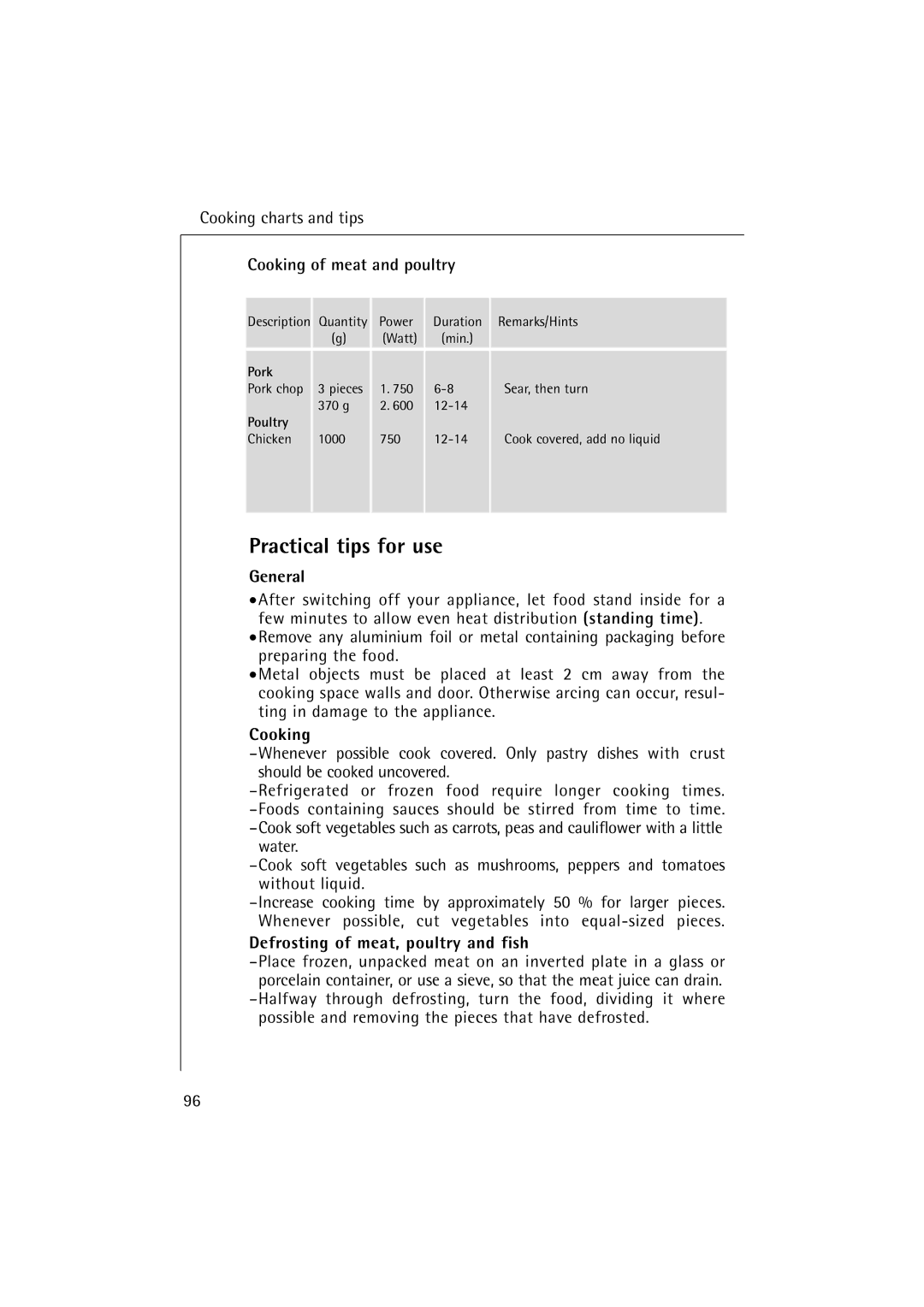Cooking charts and tips
Cooking of meat and poultry
Description | Quantity | Power | Duration | Remarks/Hints |
| (g) | (Watt) | (min.) | |
Pork | | | | |
Pork chop | 3 pieces | 1. 750 | 6-8 | Sear, then turn |
| 370 g | 2. 600 | 12-14 | |
Poultry | | | | |
Chicken | 1000 | 750 | 12-14 | Cook covered, add no liquid |
| | | | |
Practical tips for use
General
·After switching off your appliance, let food stand inside for a few minutes to allow even heat distribution (standing time).
·Remove any aluminium foil or metal containing packaging before preparing the food.
·Metal objects must be placed at least 2 cm away from the cooking space walls and door. Otherwise arcing can occur, resul- ting in damage to the appliance.
Cooking
–Whenever possible cook covered. Only pastry dishes with crust should be cooked uncovered.
–Refrigerated or frozen food require longer cooking times. –Foods containing sauces should be stirred from time to time. –Cook soft vegetables such as carrots, peas and cauliflower with a little
water.
–Cook soft vegetables such as mushrooms, peppers and tomatoes without liquid.
–Increase cooking time by approximately 50 % for larger pieces. Whenever possible, cut vegetables into equal-sized pieces.
Defrosting of meat, poultry and fish
–Place frozen, unpacked meat on an inverted plate in a glass or porcelain container, or use a sieve, so that the meat juice can drain.
–Halfway through defrosting, turn the food, dividing it where possible and removing the pieces that have defrosted.

